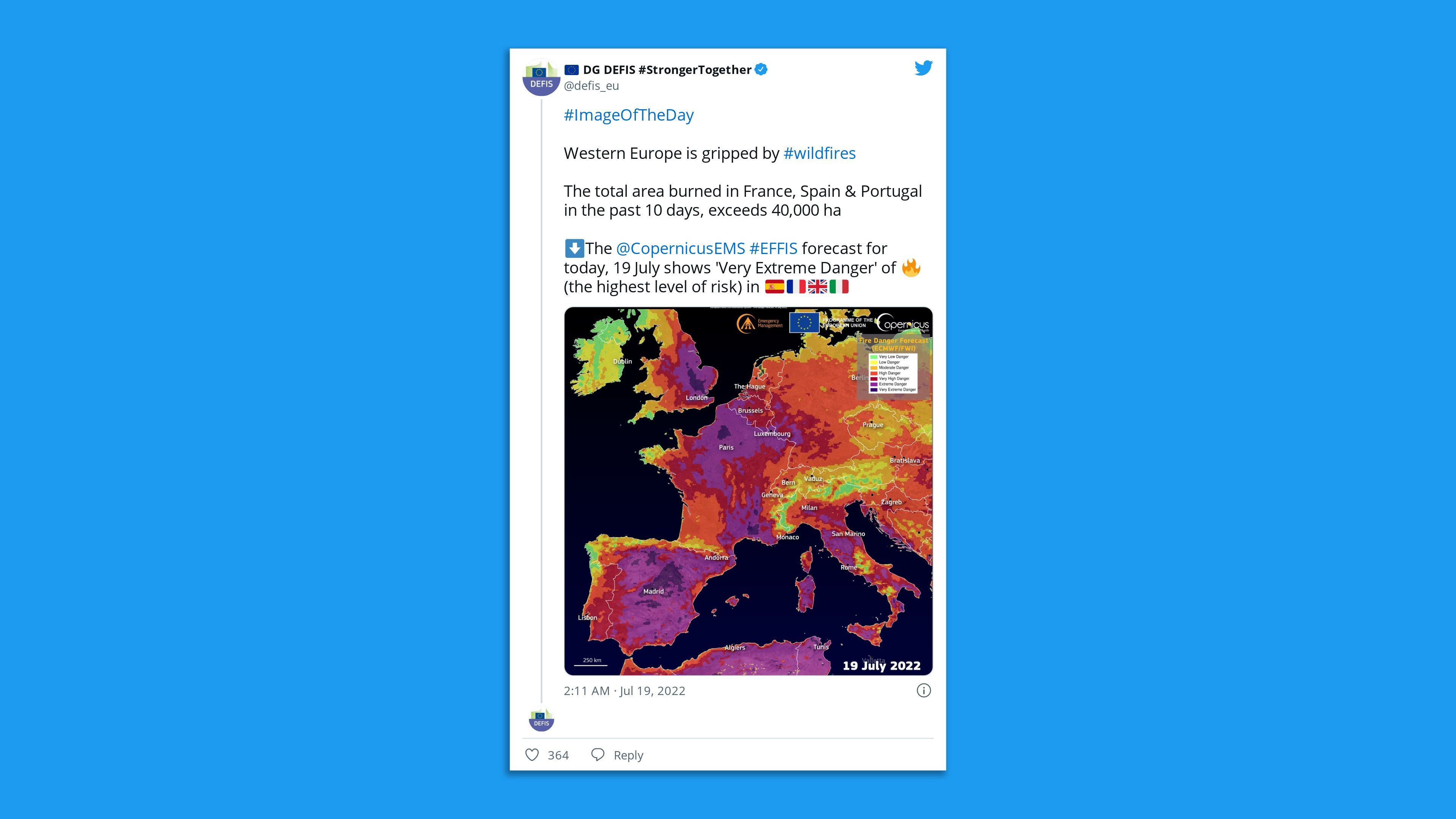Firefighters from London to Athens were battling wildfires into the night as a deadly heat wave that's engulfed much of Europe was forecast to continue into next week.
- Officials from the United Nations' World Meteorological Organization warn such extreme weather is going to be the new normal.

What's happening: A wind-driven wildfire just northeast of Athens forced a hospital and four communities in the Penteli region to evacuate late Tuesday.
- Evacuation orders were expanded to the outskirts of Greece's capital on Wednesday morning as winds with gusts of up to 50 miles per hour drove flames to several communities and a highway, according to local media.
In Italy, authorities said Wednesday morning that hundreds of people were also evacuated from the city of Massarosa, Tuscany, due to a fire.
- Several wildfires have burned across Italy for days and the country was forecast to endure temperatures of up to 108°F from Wednesday through Friday.
Spain has seen dozens of wildfires since June. One such blaze in the municipality of Ateca in the province of Zaragoza caused the suspension of all train services between Madrid, Aragon and Catalonia on Wednesday morning, local media report.
In Portugal, many of the fires that were raging last month have been contained, but a massive blaze that has razed thousands of acres in the Vila Real district was among several burning in the region on Wednesday.
Of note: While France and the United Kingdom saw cooler weather return after Monday and Tuesday's record-breaking temperatures, firefighters were fighting wildfires in both countries into Wednesday morning.
- In the wine-growing Gironde region of southwestern France, almost 1,700 firefighters, backed by firefighting aircraft, were tackling two blazes that have razed more than 11,600 acres of forest, per AFP.
- In England, fire brigades declared major incidents in London and the counties of Lincolnshire, Leicestershire, Norfolk and Suffolk, ITV News reports.
What to watch: As the heat wave spreads to the north and east of Europe, officials in Germany put 10 out of the country's 16 federal states on the highest fire alert level, with temperatures expected to exceed 104 in several regions on Wednesday, per The Local Germany.
The big picture: At a briefing Tuesday, WMO official Robert Stefanski said the searing heat "may not end possibly not until the middle of next week."
- WMO chief Peterri Taalas warned that in the future "these kinds of heatwaves are going to be normal and we will see even stronger extremes" due to climate change.
The bottom line: "The negative trending climate will persist until at least 2060," Taalas said.
- "Emissions are still growing and therefore it's not sure that we would see the peak in the 2060s if we are not able to bend this emission growth development, especially in the big Asian countries which are the largest emitters," he added.







